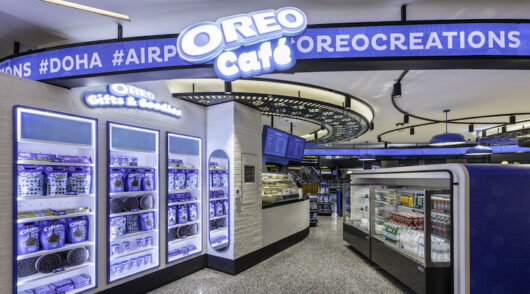 Sighs of relief and disappointment could be heard as Fair Work Commission president Ian Ross handed down a long awaited decision on Sunday penalty rates in Melbourne yesterday.
Sighs of relief and disappointment could be heard as Fair Work Commission president Ian Ross handed down a long awaited decision on Sunday penalty rates in Melbourne yesterday.
The result – which sees the largest cut to retail full and part time Sunday rates hitting 150 per cent, while casual rates will remain slightly higher at 175 per cent – are a “good step in the right direction” according to Australian Retailers Association executive director, Russell Zimmerman.
The ARA have poured considerable resources into a three year plus battle for the decision, and said the cuts cannot be implemented soon enough, given confirmation by the FWC that further submissions are being taken on the transition period for imposing the cuts.
It’s a clear signal that retailers are in for more uncertainty, particularly as expectations mount over a high court appeal before the 25 per cent to full time public holiday rates comes into effect on 1 July.
The commission hasn’t set a specific date on the implementation of Sunday rate reductions, but indicated it should occur this year.
Zimmerman is confident the decision will hold, declining to comment specifically on whether the ARA would fight for further change on Saturday rates – which the commission refrained from reducing.
“The ARA will be opposing any Union appeal, as we are hoping to achieve the July 1 implementation of a number of significant changes,” Zimmerman said
The Turnbull government and business groups say the Fair Work Commission’s independence should be respected and the decision will boost jobs and investment, especially in regional areas.
Employment Minister Michaelia Cash said that Labor leader Bill Shorten, during his tenure as workplace minister, changed the Fair Work Act to require the Fair Work Commission to review penalty rates as part of a four-yearly process.”Today’s decision by the commission to adjust penalty rates is, therefore, a direct result of the review process put in place by Bill Shorten,” Senator Cash said.
Meanwhile Labor says it never intended for the wages of Australia’s lowest paid workers to be cut when it set up the Fair Work Commission in 2009.
Shadow attorney-general Mark Dreyfus believes the rules around the workplace relations tribunal – established by the Rudd government – need to be reviewed following its decision to scale back weekend and public holiday penalty rates for retail and hospitality workers.
“It was not our intention ever that this could produce an outcome where workers’ wages, particularly lowest paid workers, would have their wages cut,” he told ABC radio on Friday.
Shorten defended doing his media conference yesterday alongside a young Coles worker who claimed to be impacted by the penalty rate decision.
The supermarket giant later clarified he would not be affected.
“He is a keen young fellow. He does depend on penalty rates,” Shorten told Network Ten.
“He is concerned in the future he will have to negotiate to keep what he has got.”
A spokesman for Coles told AAP: “Store team members at Coles are employed under an enterprise agreement and therefore are unaffected by today’s decision.”
 Cosmetics retailer, Lush, has meanwhile moved to reassure its workers that it would not be cutting penalty rates with a Facebook post to its staff from company directors Mark Lincoln and Peta Granger.
Cosmetics retailer, Lush, has meanwhile moved to reassure its workers that it would not be cutting penalty rates with a Facebook post to its staff from company directors Mark Lincoln and Peta Granger.
On the opposite side, an outspoken Sydney restaurant owner said the cuts don’t go far enough.
Garfish owner Mark Scanlan on Thursday said he was pleased the Fair Work Commission had recognised Sundays should be treated more like Saturdays, but argued the changes should extend to businesses like his.
“If I could receive the same relief as the fast food or hospitality industry award, then I would definitely reconsider opening on Sunday nights and public holidays,” he said outside his up-market Kirribilli restaurant.
“That means more hours for my existing staff and new employment for new prospective employees.”
The proposed changes, announced on Thursday, will cut Sunday penalty rates for hospitality, fast food, retail and pharmacy workers. Restaurant and club employees aren’t affected.
Scanlan argues he can’t afford to keep Garfish open on Sunday nights or public holidays due to the current penalty rates.
“It’s incredibly frustrating – employers have most definitely been disadvantaged,” he said.
Australian Chamber of Commerce and Industry chief executive James Pearson says while the cuts won’t go as far as some employers would like, it’s a promising move.
“This decision today will undoubtedly make a real difference to many, many businesses right across the country, particularly small and family-owned business, businesses that have been struggling to compete on Sundays,” Pearson said.
“(The penalty rates) have been getting in the way of offering more hours of work to more people and at a time when we need to be doing everything we can to address the high rate of unemployment in Australia.”
The Shop, Distributive and allied employees association (SDA), has yet to confirm it will appeal the decision, outlining its intent to review the ruling, which it says will wipe millions from the pockets of workers without creating a single job.
SDA national secretary Gerald Dwyer cited a McKell report which found that workers across Australia could lose as much as $1.5 billion.
“Today’s ruling has effectively created a two-tier working system, where retail and fast food workers are less important than other workers, he said.
Beyond a possible appeal, eyes now turn to the 2019 election, with political pressure mounting to change the rules guiding the Fair Work Commission.
Did the Fair Work Commission make the right call? Let us know your thoughts via the comments section below.
Access exclusive analysis, locked news and reports with Inside Retail Weekly. Subscribe today and get our premium print publication delivered to your door every week.





